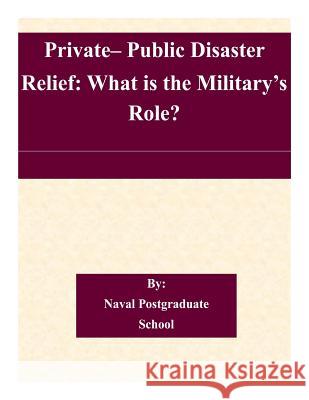Private- Public Disaster Relief: What is the Military's Role? » książka
Private- Public Disaster Relief: What is the Military's Role?
ISBN-13: 9781505318838 / Angielski / Miękka / 2014 / 70 str.
Hurricane Katrina changed the way the United States conducts domestic disaster relief, most notably with the expanded role of the U.S. military. This thesis centers on the question: To what extent should the military be involved in domestic humanitarian assistance and disaster relief? Analysis of mistakes from Katrina point to the answer: The U.S. military should not hold a primary role in disaster relief due to the issues of establishing logistic, communication and medical networks for the victims of a disaster. Instead, a shift in policy should be made to use America's private sector resources to conduct disaster relief efforts. The autonomous nature of private sector leadership allows for quick decisions and front-line empowerment to establish centers of relief to distribute food, shelter, water and medical supplies as well as support communications and logistic efforts. Because of these attributes, the private sector is better equipped than the military to handle domestic disaster relief, and a change in policy should be made to reflect this.
Zawartość książki może nie spełniać oczekiwań – reklamacje nie obejmują treści, która mogła nie być redakcyjnie ani merytorycznie opracowana.











